【Event】Swedish companies shared practices on energy saving
2015-08-04未知admin0010
Investing in energy efficiency is critical to meeting future energy demand and mitigating climate change. It has the clearest impact on saving money, improving business results, and delivering more services for consumers. A workshop on investments for increased energy savings in China was organized in Shanghai on 30 June.
The workshop aimed to provide a platform for the Swedish companies to share their experience, practices and challenges in energy saving from both strategic and practical levels. For example, SKF shared its Beyond Zero strategy, which aims to reduce energy consumption and greenhouse gas emission caused from operations not only of itself and its suppliers but also the clients.

Volvo Construction Equipment increases its energy efficiency by focusing on innovation for high-efficient engines and intelligent machine system. It also coaches operators of its products to reduce energy consumption without reducing productivity.
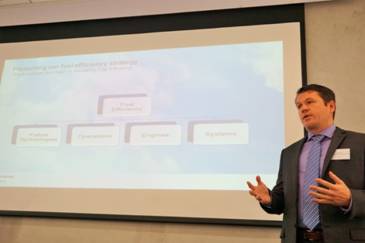
Energy saving is part of H&M’s Conscious program in which sustainability work covers the whole value chain from design to clothes washing. For example, H&M gives guidance to its consumers that it can save up to 50% of the energy by washing clothes with water of 30 °C instead of 60 °C.
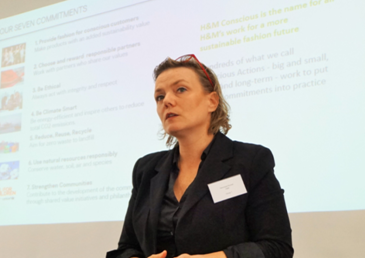
Yingli Solar Group, a Chinese supplier of photovoltaic solutions, introduced Chinese government’s policy for factories to install solar power on their plant roofs. And Tetra Pak shared their practices of improving energy efficiency through internal energy audit, energy code and training, as well as self-assessment.
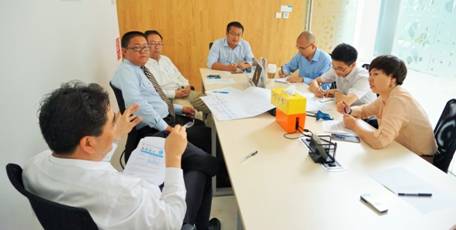
The global strategic visions and achievements on energy efficiency shared by the companies mentioned above were very inspiring. However, the majority of the full-day program was dedicated to group discussions and practice sharing among the practitioners, consisting of environmental specialists, CSR and sourcing managers. And participants from smaller Swedish companies, such as Jula and Crem International, have also shown high interest to the discussion.
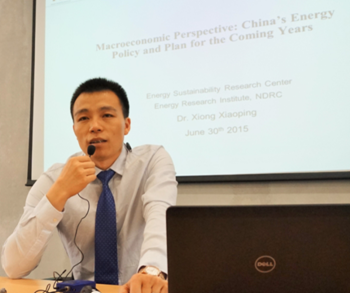
“China will strictly control the total energy consumption and promote non-fossil energy development,” said Dr. Xiong Xiaoping from the Energy Institute of the National Development and Reform Commission (NDRC) of China. He suggested companies to formulate strategies for low-carbon development through innovation and cooperate with other companies to realize systematic energy conservation.
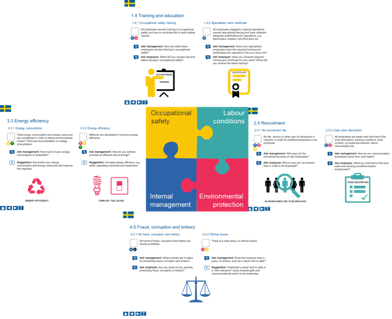
The workshop was sponsored by SKF China and co-organized by the CSR Centre of the Embassy of Sweden in Beijing, Business Sweden in China and WWF. It was one of the series workshops which the CSR Centre and the Business Sweden are co-organizing in China this year.
The CSR Centre and the Business Sweden have also jointly developed a CSR toolkit which tries to provide knowledge and very practical guidance on implementing CSR in China. The toolkit covers four thematic areas: environmental protection, labour conditions, occupational safety and internal management. There are also recommendations and checklists in the toolkit about different areas of CSR implementation in China, including energy efficiency.
The toolkit can be downloaded from:
http://www.swedenabroad.com/ImageVaultFiles/id_28846/cf_347/CSR_Toolkit_for_Sino_Swedish_supply_chains.PDF.
Photos: Business Sweden in China and Embassy of Sweden in China
The CSR Centre and the Business Sweden have also jointly developed a CSR toolkit which tries to provide knowledge and very practical guidance on implementing CSR in China. The toolkit covers four thematic areas: environmental protection, labour conditions, occupational safety and internal management. There are also recommendations and checklists in the toolkit about different areas of CSR implementation in China, including energy efficiency.
The toolkit can be downloaded from:
http://www.swedenabroad.com/ImageVaultFiles/id_28846/cf_347/CSR_Toolkit_for_Sino_Swedish_supply_chains.PDF.
Photos: Business Sweden in China and Embassy of Sweden in China
Best Practices
- The 100-year brand — Air Liquide also has a sense of juvenile
- Beijing Public Transportation Corporation: Developing green transportation to build a harmonious and livable capital
- CGN: Building a modern factory in barren deserts and developing a new win-win cooperation model along “Belt and Road”
Upcoming Event

All the materials on the site “Source: XXX (not from this site)” have been reprinted from other media. They do not imply the agreement by the site.
All the materials with “Source: CSR-China Website” are the copyright of CSR-China Website. None of them may be used in any form or by any means without permission from CSR-China Website.
GoldenBee Official WeChat
Copyright © Csr-china.net All Right Reserved.
京ICP备13041808号-3










